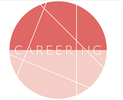Words, Ideas, StuffSome ideas and thoughts, captured with the view to help you.
|
|
Loved this article in HBR which started off with this “If you’ve ever received feedback that you “need to be more strategic,” you know how frustrating it can feel. To add insult to injury, the feedback rarely comes with any concrete guidance on what to do about it.”
We will get to the ‘what to about it’ bit, but first need to focus on why this is an area for you to ‘bulk’ up your skills in. Work and jobs are usually focused on small, measurable, short term achievements, and therefore reward and recognition are designed to kick in at the completion of tasks. There is often little financial reward for the ability to map the way forward, yet balancing both is crucial for success and seeing the end game and the factors that influence this, is a skill highly valued and rarely taught. It’s also the skill set most needed if you’re facing unknown territory! Not just in a traditional work place way, but when you’re planning your future as a musician, parent, traveller etc. - the ability to see the end goal, weigh up the risk and reward, understand the factors that will contribute to reaching the end goal, figuring out the game plan to get there and weighing up tasks and making decisions on a daily basis …. Phew …. That’s a lot to handle, no wonder it’s a sought after skill set! Here’s a great description of what strategic thinking is, from NST Insights: “Strategic thinkers consistently ask why and when. They gather information. They solve problems objectively. They innovate. They plan ahead. They adjust. They recognize how their actions affect other departments, the company as a whole, customers, etc., not just now, but long term.” How do you build strategic thinking ability?
The smart crew at HBR also raise a great point about making sure your communication style sees you come across as a strategic thinker – no point honing the skills and becoming really competent at thinking strategically, if that isn’t translated to getting your perspective across or how others perceive you. Here’s a some hot tips on how to ensure your comms reflect that awesome thinking:
Share below any tips you have too as this is an area we can all keep developing and strengthening ...
0 Comments
Your comment will be posted after it is approved.
Leave a Reply. |
Categories
All
AuthorMelissa Davies Archives
January 2024
|

 RSS Feed
RSS Feed